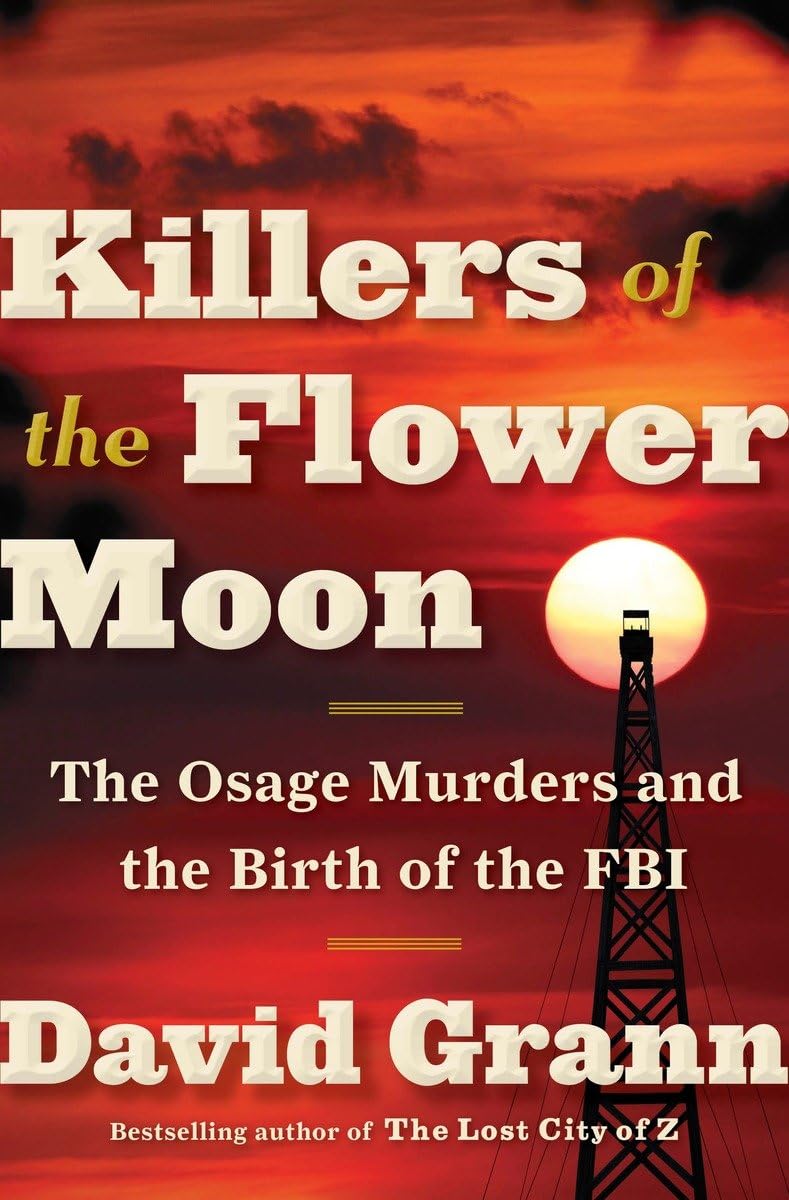Selected Bibliography
byThis Selected Bibliography serves as a meticulously curated collection rather than a conventional narrative chapter, highlighting a diverse range of scholarly and historical works that provide essential context to the book’s subject matter. The references encompass a wide array of topics, including American history, law enforcement, indigenous rights, the development of the oil industry, and biographical accounts of influential figures such as J. Edgar Hoover. These sources indicate that the book delves into pivotal moments in U.S. history, exploring the intricate connections between political power, economic growth, criminal justice, and the struggles faced by Native American communities.
The bibliography suggests that the book’s primary focus may revolve around major historical events, such as the Osage Indian murders and the establishment of the FBI, while also addressing broader sociopolitical themes. The inclusion of works related to the Teapot Dome scandal and other governmental corruption cases points to an in-depth examination of how political and corporate interests have shaped American society. Through an analytical lens, the book likely investigates the intersection of capitalism, legal institutions, and indigenous struggles, shedding light on how historical injustices have had long-lasting consequences.
A notable aspect of this collection is the emphasis on the Osage people, as evidenced by references to works such as The Osage People by W. David Baird. This indicates that the book explores the tragic history of the Osage Indian murders, where members of the wealthy Osage Nation were systematically killed in the 1920s to gain access to their oil wealth. The references suggest that the book provides a thorough investigation into the role of law enforcement and the FBI’s involvement in uncovering this conspiracy, making it an essential study of both historical crime and institutional justice.
The inclusion of Public Enemies by Bryan Burrough suggests an exploration of organized crime and its impact on American law enforcement, particularly during the early 20th century. This, combined with references to The Day Wall Street Exploded by Beverly Gage, implies that the book might analyze significant criminal cases and their broader implications for national security and financial stability. Additionally, the mention of Killers of the Flower Moon by David Grann suggests an in-depth account of the Osage murders, further reinforcing the book’s focus on the intersection of crime, corruption, and justice.
Another recurring theme within the bibliography is the role of the oil industry in shaping American history and its effects on indigenous communities. Works such as The World’s Richest Indian: The Scandal over Jackson Barnett’s Oil Fortune by Tanis C. Thorne and Oil! Titan of the Southwest by Carl Coke Rister indicate that the book delves into the economic and social ramifications of oil discovery, particularly concerning Native American lands. The narrative likely examines the exploitation of indigenous resources, the legal battles over land ownership, and the economic disparities caused by the rapid growth of the petroleum industry.
Beyond individual case studies, the bibliography also suggests a broader discussion on the evolution of criminal justice and forensic science. By incorporating sources on law enforcement history, the book likely traces the development of investigative techniques and the growing influence of the FBI in American governance. The presence of works on J. Edgar Hoover, such as Hoover’s FBI and the Fourth Estate by Matthew Cecil, suggests an analysis of Hoover’s leadership and the agency’s controversial role in shaping modern law enforcement practices.
Additionally, the inclusion of studies on American capitalism and economic history indicates that the book explores the financial structures that have fueled both progress and inequality. Titles such as The Rise of American Capitalism and The Oil Baron’s America imply an examination of how wealth accumulation and corporate influence have contributed to systemic disparities, particularly affecting marginalized communities. This perspective provides valuable insight into the economic forces that have driven historical conflicts, government policies, and social movements.
By compiling such an extensive and diverse selection of sources, the bibliography underscores the book’s ambition to provide a comprehensive historical analysis. It seeks to bridge the gap between historical events and their modern-day implications, offering a critical perspective on the forces that have shaped contemporary American society. Through its examination of crime, law enforcement, indigenous struggles, and economic power structures, the book aims to present a nuanced and thought-provoking narrative.
In summary, this bibliography reveals a book deeply rooted in historical inquiry, covering a wide range of American political, social, and economic developments from the late 19th to the mid-20th century. With a particular focus on law enforcement, the rights and struggles of indigenous peoples, and the transformative impact of the oil industry, the book promises to be an insightful exploration of the forces that have defined America’s past and continue to shape its future.


